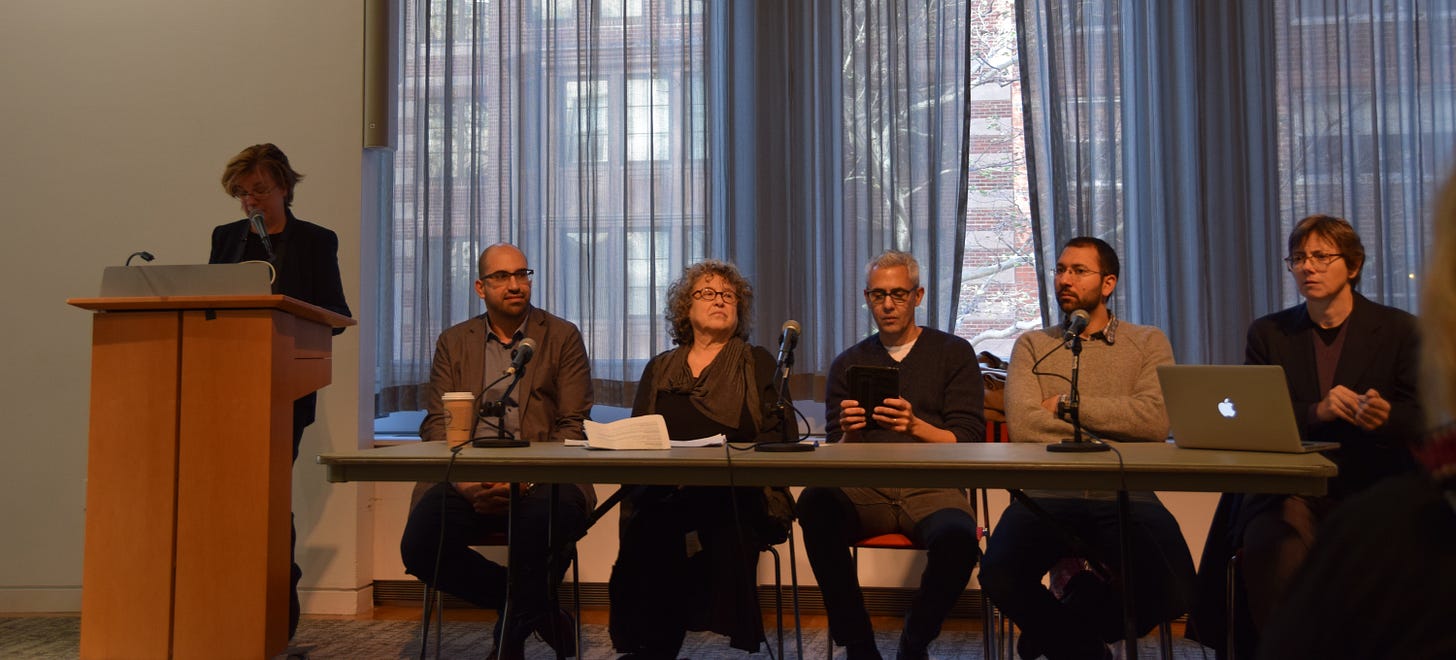Middle East Studies Programs Struggle Anew with Academic Freedom
Professor Steven Salaita’s firing is just one example of hundreds when it comes to restrictions on free speech and academic freedom in Middle East Studies at U.S. universities.
by Nadeen Shaker
At a talk held at the New School in New York City on November 19, New York University (NYU) Professor Nikhil Pal Singh shared a letter he had written about Professor Steven Salaita this past summer. It was a confidential, peer-review letter that helped the University of Illinois at Urbana-Champaign decide to hire Salaita as a tenured professor in its Department of Native American Studies. The university’s Board of Trustees later rescinded the job offer, in response to statements Salaita made on Twitter expressing outrage at the Israeli assault on the Gaza Strip in July and August 2014. The assault, known as Operation Protective Edge, killed over 2,500 Palestinians.
Although he debated whether to read the letter, Singh said he wanted to show that Salaita was a “very serious scholar.” His firing was a sign of “U.S. violence: a person deprived of his livelihood for expressing his viewpoint,” Singh said. Salaita was also a participant in the New School talk and was present for the reading.



